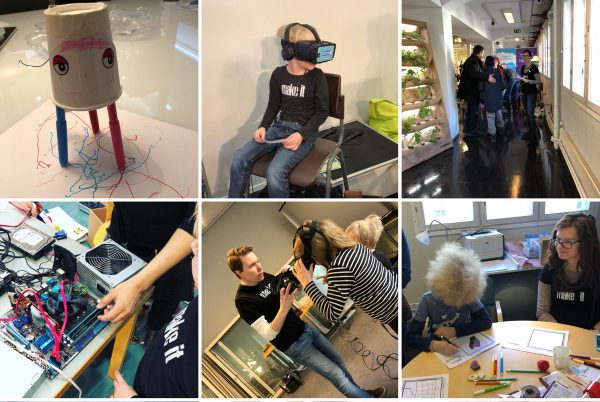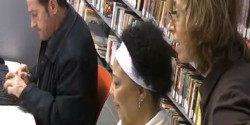21 Nov We Need Digital Literacy to Stay Safe
21 Nov, 2014
by Gabriela Ruseva
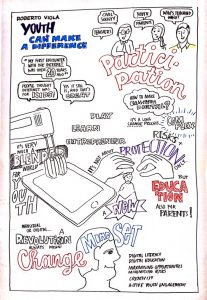 The 11th Safer Internet Forum took place on 6-7th November in Brussels with more than 260 participants. It is organised and funded by the European Commission with the assistance of European SchoolNet under the Safer Internet Programme, part of the European Strategy for a Better Internet for Children.
The 11th Safer Internet Forum took place on 6-7th November in Brussels with more than 260 participants. It is organised and funded by the European Commission with the assistance of European SchoolNet under the Safer Internet Programme, part of the European Strategy for a Better Internet for Children.
Policy makers, youth ambassadors, academia, industry representatives, teachers and trainers came together to discuss what growing up digitally means. Should youngsters be supported and supervised in their online journeys? How old is too young to go online? What do children and young people do online? How to ensure their online safety? These were some of the questions posed during sessions on child development, online advertising, Apps, self-expression, creativity and more.
The Forum kicked off with a keynote speech [infographic] from Deputy Director-General of DG CONNECT, Roberto Viola, who defined online safety as protection, but also active participation and education of parents.
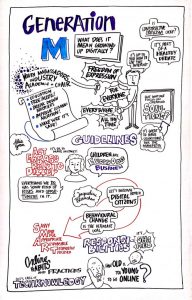
Generation M infographic
In the first panel Generation M , youth ambassadors called for ownership and youth driven initiatives. Lelia Green, Professor at Edith Cowan University, Australia, underlined that children and youth online safety is everybody’s business. Why? Because nowadays children learn basic things online – like building relationships – and a collective effort is needed to free this process from commercial interests and advertising.
Jacqueline Beauchere, Chief Online Safety Officer at Microsoft, recognised the main role of industry to inform and educate their users about the safety features of products. To collect their experiences Microsoft created the #do1thing initiative encouraging customers to share one practice of staying safe online. Technology should go hand in hand with “tech-knowledge-y”, meaning that parents should not only buy devices for their children, but sit down with them, play the games they play and use the apps they use.
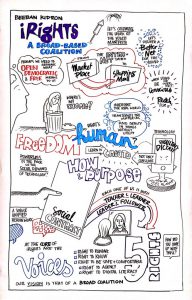
Second keynote speech: iRights
The web has evolved beyond the imagination of those who invented it, said Beeban Kidron, British film director and author of InRealLife, a documentary about the influence of Internet on today’s youth. She presented the iRights coalition, promoting the 5 iRights in UK [1].
“Digital literacy is at the core of online safety – if we want our children and youth to be safe, we should ensure that both teachers and trainers, as well as young people themselves, are digitally literate.” said Kidron.
The second panel titled Advertising – what’s too much? [infographic] proposed some useful tools to protect ourselves from online adds, such as Adblock Plus, which can be installed for free and blocks annoying unwanted adds on the websites we surf.
In the industry-led afternoon panel, industry representatives shared their companies’ online safety initiatives:
- Telefonica’s Digital Family Platform, a Parent Resource Centre already available in Spain.
- Vodafone’s Digital Parenting, where parents (but also teachers and trainers) can find useful learning resources e.g. on coding and parental control; discussion forum and expert advice.
- BBC ‘Make it digital’ coding campaign (to be launched in 2015).
- Experts from the BBC, Ravensburger, Toca Boca and other creative producers give practical tips on how to make digital products for children in the book ‘Positive Digital Content’.
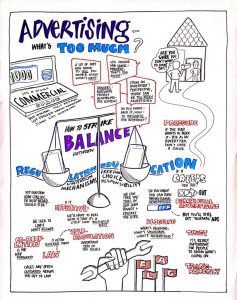 At the end of the panel Telecentre Europe underlined that third sector organisations such as telecentres can reach target groups and facilitate the use of tools developed by companies. We asked what is the role for telecentres in corporate education and awareness raising initiatives and do companies see them as a link with the end users who need this information the most.
At the end of the panel Telecentre Europe underlined that third sector organisations such as telecentres can reach target groups and facilitate the use of tools developed by companies. We asked what is the role for telecentres in corporate education and awareness raising initiatives and do companies see them as a link with the end users who need this information the most.
“NGOs are free to use and share the tools and content we create. When a new initiative is being developed, BBC always consults relevant charities and other third sector organisations.” But partnership can go much further, can’t it?
More information is available on the website of the INSAFE project. You can find out what is planned for the next Safer Internet Day 2015. Some Telecente Europe members are national Safer Internet Centres (e.g. Langas I Ateiti as part of the Lithuanian Safer Internet Center and the Czech National Safer Internet Centre).
[1] Telecentre-Europe’s member Tinder Foundation is one of the signatories


